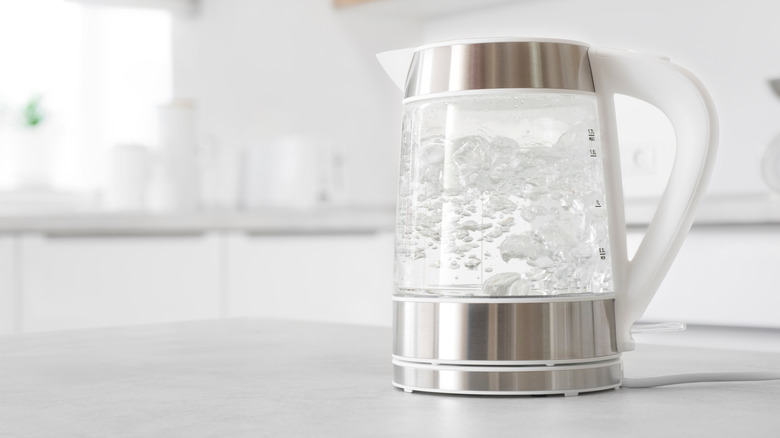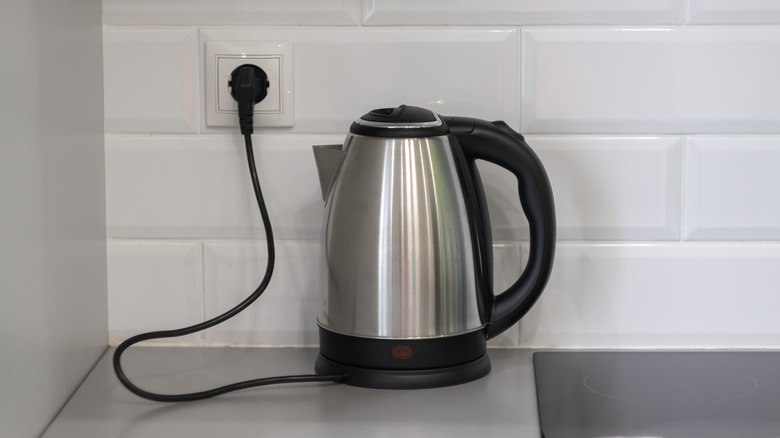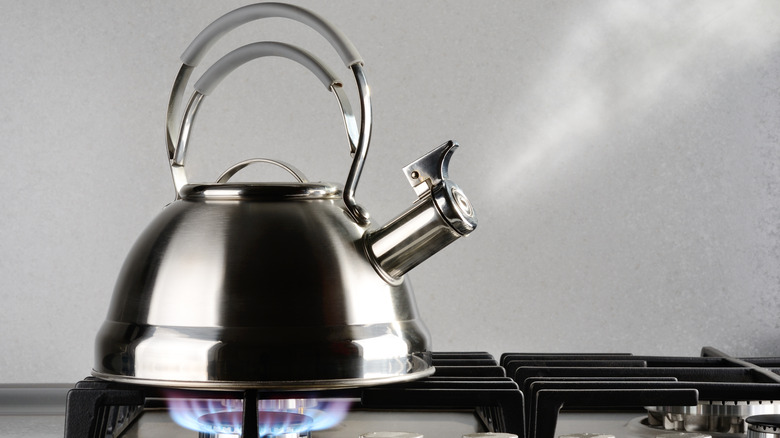The Hidden Downsides To Electric Kettles
Kettles are must-have appliances in most kitchens. In the past, the stovetop kettle was used to heat water. More recently, however, the traditional stovetop model has been replaced with the electric kettle in many homes.
Electric kettles are sometimes preferred over stovetop models because they have quite a number of benefits. For starters, electric kettles boil water faster than stovetops, which saves people time. They're also easy to use and convenient for travel, as some models are wireless, per Home Advised. According to India Stuffs, some portable models can even be used with a USB charger. Another benefit is that they are much more versatile than stovetop models. Because most come with a range of heat settings, electric kettles can be used for a variety of kitchen tasks, per Alternative Brewing. They also automatically turn off when they reach their desired temperature. However, when considering an electric kettle, there are some downsides that should be considered.
Safety and cost factors
For starters, it's not conclusive whether electric kettles are 100% safe or not. In the past, there was concern about plastic electric kettles, and some were found to be made with BPA plastics. However, Alternative Brewing says that this is no longer a concern, as it's easy to find non-BPA kettles. Additionally, if you're concerned about plastic being harmful, you can always get a glass, ceramic, or steel electric kettle.
However, some still have concerns about the safety of electric kettles. Because they are plugged into an outlet, some worry that they may not be as fireproof as stovetop models, per Home Advised. Also, if your electric kettle contains any plastic, it could cause the water to taste bad or to have an unwelcome odor, even upon first use.
The final downside is the cost. Electric kettles are typically more expensive than stovetops, and they don't last as long. According to Home Advised, electric kettles only last three to five years. They also use more electricity, which could raise your electric bill.
Why a stovetop kettle may be a better option
For some, a stovetop kettle is the best option, as opposed to an electric kettle. While stovetops take longer to boil water and don't come with temperature ranges, they do have some benefits that electric kettles don't.
Alternative Brewing lists some of the main benefits of a stovetop kettle. The first is that they are able to maintain a rolling boil, which means they can continue to boil water for a long period of time. (A rolling boil could be useful for someone who serves coffee or tea for a long period of time.) Electric kettles cannot do this, as they automatically turn off when they reach the desired temperature. Second, stovetop kettles don't have their own heat source, which could be potentially harmful. While requiring an external heat source (like a stove) may be a downside for some, the advantages of guaranteed health safety may be a positive for others. Third, stovetop appliances are easier to clean, because they have fewer parts and no attached heating system.


